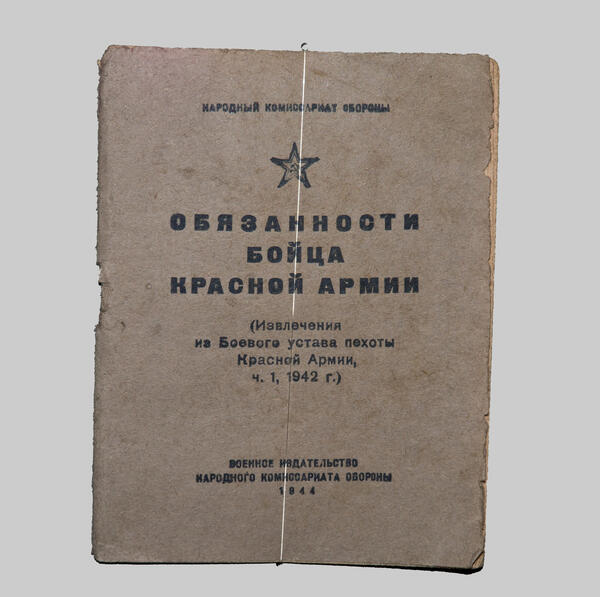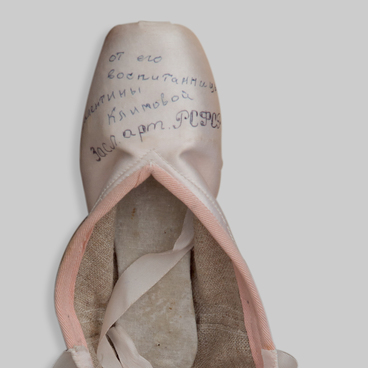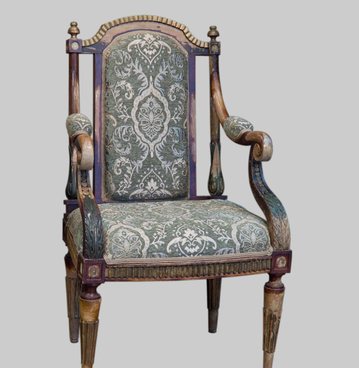Brochure ‘Duties of the Red Army soldier’ is a short extract from the Red Army Infantry Field Manual, adopted on November 9, 1942. In accordance with this charter, the military of the Leningrad twice Red Banner Infantry School named after Sergey Kirov were trained in BereznikI during the war.
The fact is that in August 1941 a difficult situation occurred around Leningrad. It was impossible to train qualified military. Therefore, the Leningrad Infantry School was relocated to BereznikI. To accommodate the personnel of the school, barracks were allocated on Stalin Avenue, in the vicinity of the first potash plant.
The training process was adjusted in the shortest possible time. In addition to training military personnel, the school took an active part in the public life of BereznikI, rendered all possible assistance to enterprises and institutions.
From August 1941, troop trains with seriously wounded began to arrive in Berezniki. There was a need to disembark the wounded out of the troop trains as quickly as possible and deliver them to the hospitals. The command and cadets of the Leningrad Infantry School came to the rescue. In 1942-1943, the military took part in the construction of the BereznikI magnesium plant, and helped in harvesting at the collective farms.
The school had a brass and jazz orchestras, a choir and a theater amateur group. The collective took part in cultural and educational work and propaganda activities. We went to concerts in the city, in the countryside. The brass band of the school gave concerts in the Park of Culture and Leisure and the Palace of Culture n.a. Lenin. The Leningrad Red Banner Infantry School was twice awarded with certificate of honor for cultural work among the population of BereznikI.
During the time the school was in Berezniki, it was possible to train more than ten thousand junior officers and junior commanding staff, two troops of political workers. At the end of April 1945, the commanders and the entire staff of the school left Berezniki and returned to their permanent place of deployment - in Peterhof near Leningrad. Among the famous graduates of the school of the post-war period is the commander of the 40th Army in Afghanistan, General Boris Gromov.
The fact is that in August 1941 a difficult situation occurred around Leningrad. It was impossible to train qualified military. Therefore, the Leningrad Infantry School was relocated to BereznikI. To accommodate the personnel of the school, barracks were allocated on Stalin Avenue, in the vicinity of the first potash plant.
The training process was adjusted in the shortest possible time. In addition to training military personnel, the school took an active part in the public life of BereznikI, rendered all possible assistance to enterprises and institutions.
From August 1941, troop trains with seriously wounded began to arrive in Berezniki. There was a need to disembark the wounded out of the troop trains as quickly as possible and deliver them to the hospitals. The command and cadets of the Leningrad Infantry School came to the rescue. In 1942-1943, the military took part in the construction of the BereznikI magnesium plant, and helped in harvesting at the collective farms.
The school had a brass and jazz orchestras, a choir and a theater amateur group. The collective took part in cultural and educational work and propaganda activities. We went to concerts in the city, in the countryside. The brass band of the school gave concerts in the Park of Culture and Leisure and the Palace of Culture n.a. Lenin. The Leningrad Red Banner Infantry School was twice awarded with certificate of honor for cultural work among the population of BereznikI.
During the time the school was in Berezniki, it was possible to train more than ten thousand junior officers and junior commanding staff, two troops of political workers. At the end of April 1945, the commanders and the entire staff of the school left Berezniki and returned to their permanent place of deployment - in Peterhof near Leningrad. Among the famous graduates of the school of the post-war period is the commander of the 40th Army in Afghanistan, General Boris Gromov.



